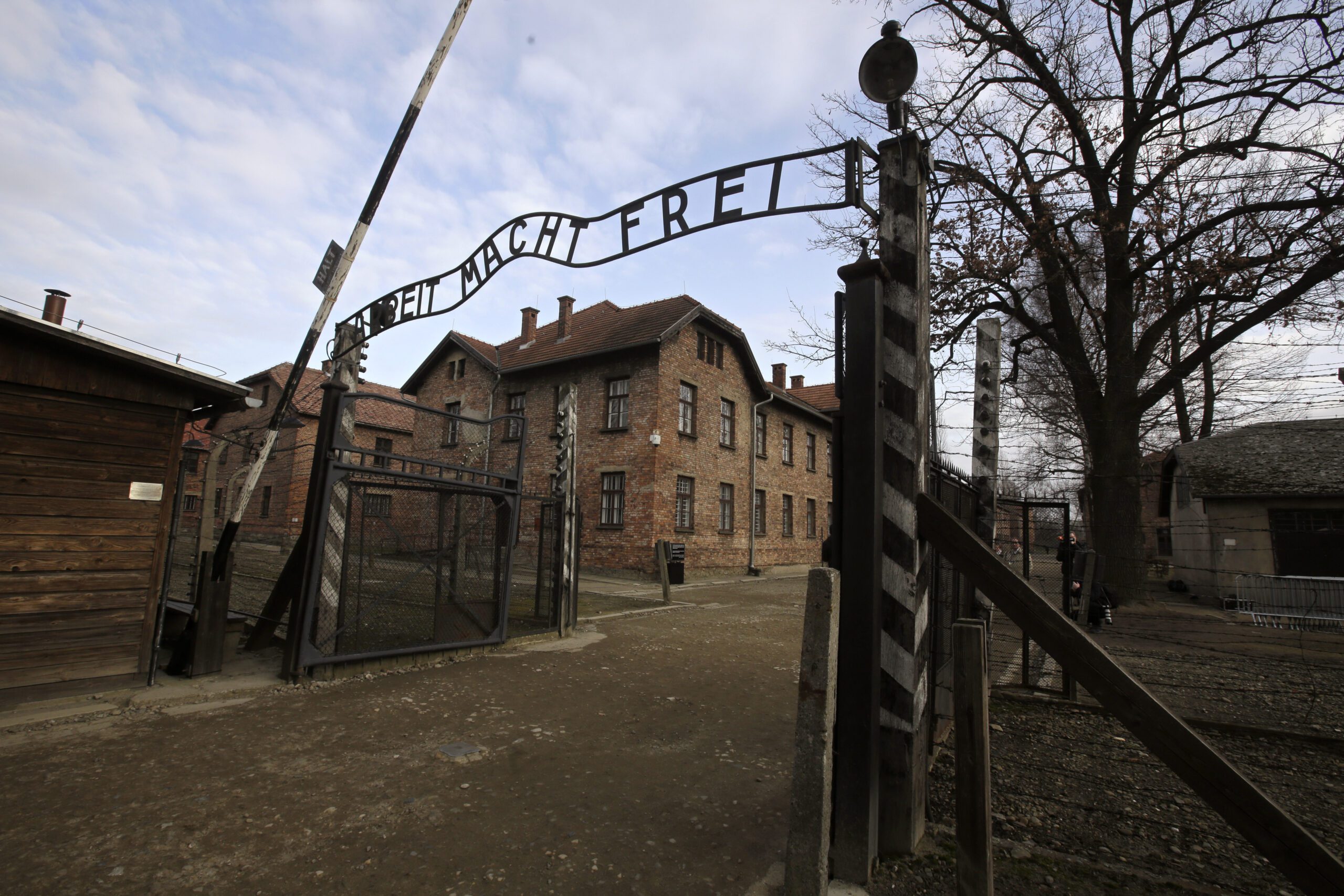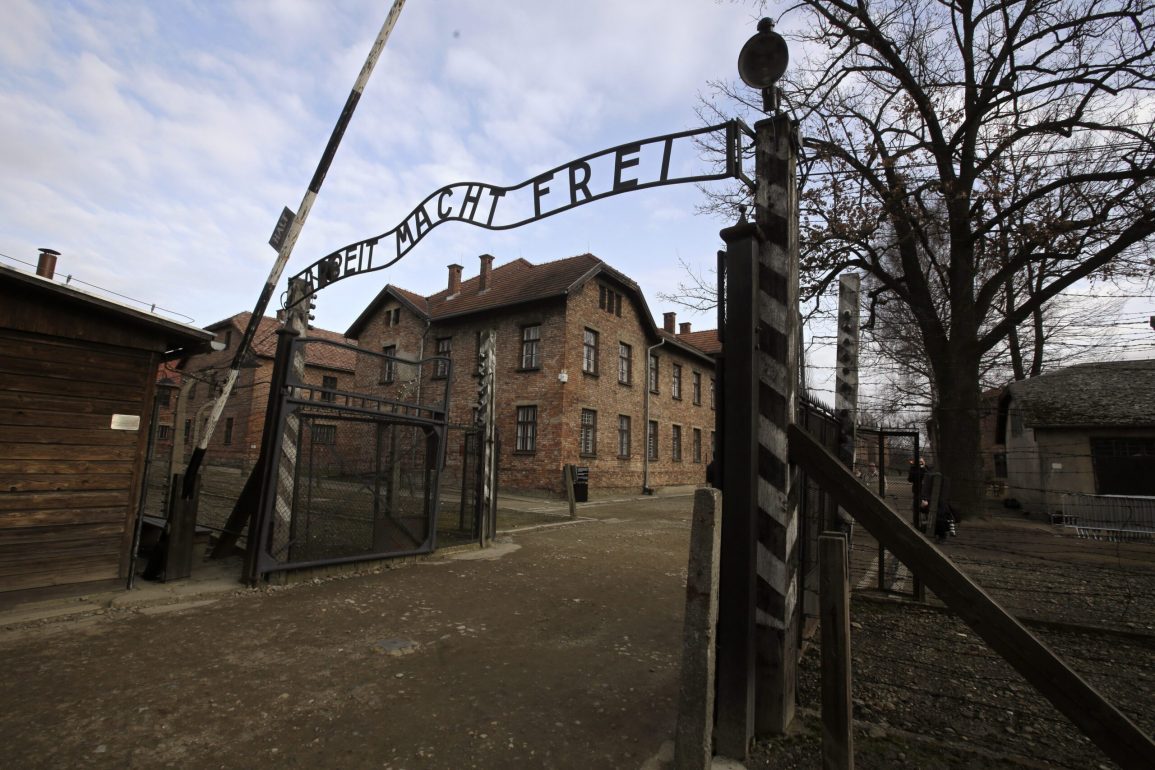
(RNS) — As the late comedian Will Rogers would have said, I never met a metaphor I didn’t like.
Actually, I have met several I don’t like, and they’re all about the Holocaust.
New York City mayoral candidate Zohran Mamdani got into trouble because he was trying to explain or neutralize his use of the term “intifada.”
“What I hear in so many is a desperate desire for equality and equal rights in standing up for Palestinian human rights,” he said. He then said that the United States Holocaust Memorial Museum had used the word “intifada” when translating the Warsaw Uprising into Arabic, as intifada means “struggle.”
The museum was not happy. It called the comparison “outrageous and especially offensive to survivors.”
That’s because there are many Palestinian sympathizers who want to “globalize the intifada.” But no Jew ever wanted to globalize the Warsaw Ghetto uprising.
As for “globalize the intifada,” Mamdani has refused to repudiate the phrase, though Democratic Sen. Kirsten Gillibrand has asked him to do so.
But back to the intifada/Warsaw Ghetto issue: I am not surprised. People use Holocaust metaphors all the time, especially on social media. The longer an argument goes, the higher the likelihood that someone will call someone else a Nazi.
Critics of the Trump administration have compared U.S. Immigration and Customs Enforcement to the Gestapo, or the SS. They have compared immigrant detention centers in Florida to Auschwitz. They have compared President Donald Trump to Adolf Hitler, and Stephen Miller to Joseph Goebbels.
It happens on the right, too. Remember COVID-19 restrictions? When people complained about those policies, they had a habit of comparing them to Nazi actions. They used terms like “needle Nazis” and “medical brown shirts.”
Anti-abortion activists like the Holocaust comparison, too. John Joseph Powell authored a book called “Abortion: The Silent Holocaust.”
Some right-wing Jews refer to left-wing Jews as kapos. Some critics have called me that, while others have called me a dangerous neoconservative warmonger. Sometimes, I have even been called both these things by the same person.
In “Through the Looking-Glass” by Lewis Carroll, Humpty Dumpty says, “When I use a word, it means just what I choose it to mean — neither more nor less.”
But we are not supposed to be living in that world.
ICE is bad, but it is not the Gestapo or the SS, whose victims had minimal chances of survival.
The immigrant detention centers? Horrible places that should not exist. But Auschwitz? Where 1.3 million people were imprisoned in the most inhumane of conditions, forced into slave labor and where 1.1 million people died?
Trump as Hitler? On the surface, there are some similarities. But their political theories are completely different. Nazism was collectivist; Trump is radically individualistic. Nazism is a sophisticated ideology; Trump has no core beliefs. Hitler and the Nazis worshipped war; Trump seems to have an aversion to military service.
That’s the unsettling thing about Trump: He evokes many different people – Charles Lindbergh, Father Charles Coughlin and Sen. Joseph McCarthy, among them.
Jewish right-wingers calling those they disagree with kapos should be ashamed. It is the absolute worst thing you can call a Jew. The comparison violates Jewish historical memory, and it desecrates victims of the Shoah. The kapos were concentration camp inmates, appointed by the SS, to supervise slave labor. Some were common criminals, and they often behaved brutally.
You may think whatever you want about Jews on the far left. You may disagree with them about Israel-related issues. But to call them kapos is pathetic.
Those who use that metaphor should take a trip to the U.S. Holocaust Memorial Museum and then ask themselves whether their rhetoric is appropriate.
On one hand, I understand why people compare horrible things to the Holocaust. We witness something that seems to be the apogee of absolute evil, and we need a way to name it and process it. That is where metaphor comes in.
But Alvin Rosenfeld cautions us:
“Before long, [the Holocaust] turns into something else — a repository of “lessons” about “man’s inhumanity to man,” a metaphor for victimization in general, a rhetoric for partisan politics. … It is more likely, in fact, that the steady domestication of the Holocaust will blunt the horrors of this history and, over time, render them less outrageous, and, ultimately, less knowable. … To those who know better — presumably to anyone with even a modicum of historical memory — these analogies are not only in bad taste: they are subversive of good sense, sober judgment, and reason itself.”
I understand Rosenfeld’s reticence to promiscuously call things a Holocaust. But I also understand that the Holocaust is many things, including a warning.
In 1959, the playwright Eugène Ionesco wrote an important absurdist play, “Rhinoceros.” It was about how people simply conformed to a new trend – becoming rhinoceroses. It was an allegory about political conformity.
Author Timothy Snyder quotes Ionesco:
“University professors, students, intellectuals were turning Nazi, becoming Iron Guards, one after the other. At the beginning, certainly they were not Nazis. About 15 of us would get together to talk and to try to find arguments opposing theirs. It was not easy. … From time to time, one of our friends said: “I don’t agree with them, to be sure, but on certain points, nevertheless, I must admit, for example, the Jews … ” etc. And this was a symptom. Three weeks later, this person would become a Nazi. He was caught in the mechanism, he accepted everything, he became a rhinoceros. Towards the end, only three or four of us were still resisting.”
This is a warning to both those on the right and on the left.
Where am I seeing the rhinoceroses today?
I’m seeing them in anti-Israel forces on the political and cultural left. Look at what happened at the Glastonbury music festival, where a performer named Bob Vylan — an obvious distortion of the name of popular music’s most prolific and iconic Jewish artist — led the crowd in “Death, death to the IDF!” and “From the river to the sea, Palestine will be free, inshallah!”
They are all rhinoceroses.
Meanwhile, in Boulder, Colorado, the anti-Israel screed claimed another victim. Karen Diamond, 82, died of burn injuries she suffered when an anti-Israel activist threw Molotov cocktails earlier this month at people marching in support of the hostages taken by Hamas on Oct. 7, 2023.
Jews burned in an antisemitic action. That, too, is a horrific metaphor.








